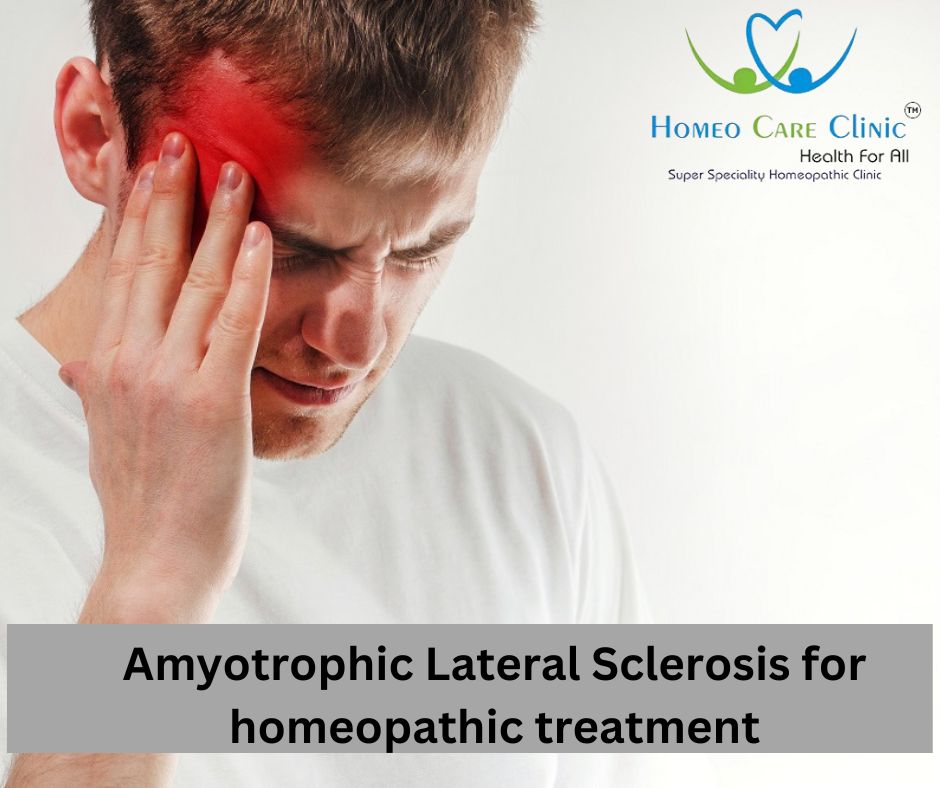Amyotrophic Lateral Sclerosis (ALS), also known as Lou Gehrig’s disease, is a progressive neurodegenerative disorder affecting the motor neurons in the brain and spinal cord. This condition leads to the gradual degeneration and loss of these neurons, ultimately resulting in muscle weakness, atrophy, and loss of voluntary muscle control. ALS is a debilitating and incurable disease, often leading to severe disability and, in some cases, respiratory failure.
Causes:
The precise cause of ALS remains largely unknown, with most cases being sporadic. However, some genetic mutations have been identified, contributing to familial ALS cases. Genetic and environmental factors are believed to play a role in the development of the disease. Mutations in genes like C9orf72, SOD1, and others have been associated with ALS, disrupting the normal function of motor neurons and leading to their degeneration.
Symptoms:
- Muscle Weakness: The hallmark symptom of ALS is progressive muscle weakness, typically starting in the limbs and later affecting other muscle groups.
- Muscle atrophy: Gradual wasting away of muscles due to the loss of motor neurons.
- Difficulty Speaking and Swallowing: ALS can impact the muscles used for speech and swallowing, leading to slurred speech and difficulty eating.
- Muscle Cramps and Twitching: Patients may experience muscle cramps, fasciculations (twitching), and spasticity.
- Respiratory Complications: In advanced stages, ALS can affect the muscles involved in breathing, leading to respiratory failure.
Homeopathic Approach:
While ALS is a challenging condition with limited treatment options. homeopathy aimed at improving the patient’s quality of life. It’s important to note that homeopathy provides relief from certain symptoms and enhances overall well-being.
- Cuprum Metallicum: This remedy is often considered for muscle cramps, spasms, and twitching associated with ALS. It may help alleviate some of the discomfort related to muscle dysfunction.
- Gelsemium Sempervirens: Indicated for weakness, trembling, and heaviness in the limbs, Gelsemium may be considered in cases of muscle weakness and fatigue associated with ALS.
- Lathyrus Sativus: This remedy is sometimes used for conditions involving weakness and paralysis of the lower limbs. It may be considered in the homeopathic management of ALS-related motor symptoms.
- Causticum: Indicated for weakness, trembling, and difficulty swallowing, Causticum may be beneficial in addressing some of the symptoms associated with ALS.
- Conium Maculatum: This remedy is often considered for conditions involving weakness, trembling, and difficulty in coordinating movements. It may be used in the homeopathic approach to address certain aspects of ALS symptoms.
Conclusion:
ALS poses significant challenges due to its progressive nature and impact on motor function. Consulting with a qualified homeopathic practitioner is essential for the selection of the most suitable remedies based on the patient’s unique symptoms and overall health. Dr.Vaseem Choudhary’s “Homeo Care Clinic” has emerged as a leading institution in the field of homeopathy, particularly in the treatment of Amyotrophic Lateral Sclerosis (ALS). The clinic’s approach combines years of experience, in-depth knowledge of homeopathic principles, and advanced research to achieve unparalleled results.






